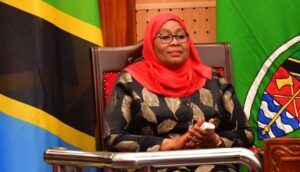By AWLF | October 29 2025
As Tanzania heads to the polls today, the presence of President Samia Suluhu Hassan on the ballot as one of Africa’s only two current female heads of state, stands as a historic symbol.

Since taking office in 2021, Suluhu has reversed regressive policies such as the ban on pregnant schoolgirls returning to school, introduced the Samia Scholarship for vulnerable girls, and appointed women to roughly one-third of cabinet posts. In 2023, her administration adopted a new National Gender and Women’s Development Policy, and in 2024, it launched a National Plan of Action to End Violence Against Women and Children (2024–2030). These are meaningful strides.
Tanzania has also ratified key continental and global instruments that enshrine gender equality and democratic accountability, including:
The African Charter on Democracy, Elections and Governance (ACDEG), committing to inclusive participation and accountable governance.
The Maputo Protocol (Protocol to the African Charter on Human and Peoples' Rights on the Rights of Women in Africa), mandating state action on reproductive rights, violence prevention, and political participation.
SDG 5 (Achieve gender equality and empower all women and girls), reflected in Tanzania’s commitments through the UN Generation Equality Forum.
Despite these frameworks, gaps remain between commitments and lived realities. Only 10% of Tanzania’s Members of Parliament are directly elected women, with the majority occupying reserved “special seats.” Gender-based violence persists; affecting an estimated 38% of women, according to UNICEF and discriminatory laws on marriage and inheritance are still unreformed.
Women human rights defenders have faced intimidation, digital violence, and arrests in recent years. In August 2025, AWLF and other regional groups condemned the harassment of women activists and urged President Suluhu to uphold Tanzania’s obligations under ACDEG and the Maputo Protocol by protecting civic space and promoting gender-just leadership.
President Suluhu has consistently emphasized national unity, moderation, and development over explicit feminist reform. While many respect her diplomacy and symbolism, others question whether her tenure has disrupted patriarchal power structures or simply adapted to them.
As voters choose their leaders today including a record number of women running for office across party lines, we are reminded that representation is only the first step. Feminist leadership demands transformational policies, intersectional inclusion, and the political will to confront inequality at its roots.
The 2025 elections are an opportunity to ask whether Tanzania is ready to embrace feminism as system change transforming the structures that uphold inequality into ones that center justice, inclusion, and dignity for all.
